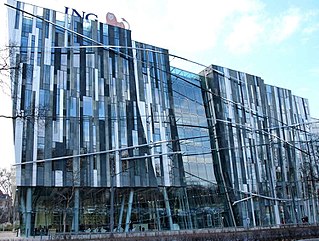
The politics of Malta takes place within a framework of a parliamentary representative democratic republic, whereby the President of Malta is the constitutional head of state. Executive Authority is vested in the President of Malta with the general direction and control of the Government of Malta remaining with the Prime Minister of Malta who is the head of government and the cabinet. Legislative power is vested in the Parliament of Malta which consists of the President of Malta and the unicameral House of Representatives of Malta with the Speaker presiding officer of the legislative body. Judicial power remains with the Chief Justice and the Judiciary of Malta. Since Independence, the party electoral system has been dominated by the Christian democratic Nationalist Party and the social democratic Labour Party.
A referendum on joining the European Union was held in Norway on 27 and 28 November 1994. After a long period of heated debate, the "no" side won with 52.2 per cent of the vote, on a turnout of 88.6 per cent. Membership of what was then the European Community had previously been rejected in a 1972 referendum, and by French veto in 1962.

This is a list of referendums related to the European Union, or referendums related to the European Communities, which were predecessors of the European Union. Since 1972, a total of 48 referendums have been held by EU member states, candidate states, and their territories, with several additional referendums held in countries outside of the EU. The referendums have been held most commonly on the subject of whether to become a member of European Union as part of the accession process, although the EU does not require any candidate country to hold a referendum to approve membership or as part of treaty ratification. Other EU-related referendums have been held on the adoption of the euro and on participation in other EU-related policies.

The Hungarian Workers' Party is a communist party in Hungary led by Gyula Thürmer. Established after the fall of the communist Hungarian People's Republic, the party has yet to win a seat in the Hungarian parliament. Until May 2009 it was a member of the Party of the European Left.

A referendum on the treaty establishing a Constitution for Europe was held in Spain on 20 February 2005. The consultative referendum on ratification of the proposed Constitution of the European Union was approved by 81.8% of voters, although turnout was just 41.8%, the lowest since the end of the Franco era.

A referendum on the enlargement of the EC was held in France on 23 April 1972. Voters were asked whether they approved of Denmark, Ireland, Norway and the United Kingdom joining the EC.. The proposals were approved by 68.3% of voters, with a turnout of 60.2%.
Events from the year 2003 in the European Union.

A referendum on joining the Eurozone was held in Denmark on 28 September 2000. It was rejected by 53.2% of voters with a turnout of 87.6%.

A referendum on revoking some medical and tuition fees was held in Hungary on 9 March 2008. The proposals would cancel government reforms which introduced doctor visit fees paid per visitation and medical fees paid per number of days spent in hospital as well as tuition fees in higher education. All three were supported by a majority of voters. Prime Minister Ferenc Gyurcsány stated that the fees would be abolished on 1 April 2008 following the referendum, but that the government had no funds available to replace the income lost for the higher educations institutions and health institutions due to the abolishment of the fees.
The 2003 Estonian European Union membership referendum took place on 14 September 2003 to decide whether Estonia should join the European Union (EU). Just over two-thirds of voters voted Yes and Estonia joined the EU on 1 May 2004.

A referendum on European Union membership was held in Latvia on 20 September 2003. Latvia was the last of the states which would join the EU in 2004 to hold a referendum on the issue. Just over two-thirds of voters voted Yes and Latvia joined the EU on 1 May 2004.

The 2003 Lithuanian European Union referendum took place from 10 May to 11 May 2003 to decide whether Lithuania should join the European Union (EU). Over 90% of those who voted supported membership and Lithuania joined the EU on 1 May 2004.

A referendum on European Union membership was held in Malta on 8 March 2003. A narrow majority voted in favour of joining but the opposition Labour Party rejected the results. The victory of the Nationalist Party in the 2003 general election confirmed the result of the referendum and Malta joined the EU on 1 May 2004.
A referendum on joining the European Union was held in Slovakia on 16 and 17 May 2003. It was approved by 93.7% of those voting, and Slovakia subsequently joined the EU on 1 May 2004. It remains the only referendum in the country's history to have not failed due to insufficient voter turnout.
Five referendums were held in Switzerland during 2005. The first two were held on 5 June on Switzerland joining the Schengen Area and whether registered partnerships for same-sex couples should be introduced. Both questions were approved. The third was held on 25 September on a federal resolution on extending the agreement on free movement of people to new members of the European Union, and was also approved. The final two were held on 27 November on a popular initiative "for food from an agriculture free of genetic modification" and on a labour law related to the opening times of shops in public transport hubs. Both were approved.

A referendum on European Union membership was held in Austria on 12 June 1994. The question asked was Shall the National Council's decision on the Constitutional Law (Bundesverfassungsgesetz) concerning the Accession of Austria to the European Union be enacted as law?. The result of the vote was 66.6% in favour, with a turnout of 82.3%. Austria joined the EU as part of the 1995 enlargement.

A referendum on the EU accession of the Republic of Croatia was held on 22 January 2012. Croatia finished accession (membership) negotiations on 30 June 2011 and signed the Treaty of Accession on 9 December 2011, setting it on course to become the bloc's 28th member state. The Constitution of Croatia requires that a binding referendum be held on any political union reducing national sovereignty, such as via European Union membership. On 23 December 2011 the Croatian Parliament made a preliminary decision on EU accession and determined that the referendum would be held on 22 January 2012. The 2012 Croatian EU accession referendum was the first referendum held in Croatia since the Croatian independence referendum held more than 20 years earlier, in 1991.

The European Union Referendum Act 2015(c. 36) is an Act of the Parliament of the United Kingdom that made legal provision for a pre-legislative referendum to be held in the United Kingdom and Gibraltar, on whether it should remain a member state of the European Union or leave it. The bill was introduced to the House of Commons by Philip Hammond, Foreign Secretary on 28 May 2015. Two weeks later, the second reading of the Act was supported by MPs from all parties except the SNP; the Act subsequently passed on its third reading in the Commons on 7 September 2015 and was approved by the House of Lords on 14 December 2015, and given Royal Assent on 17 December 2015 and came partly into force on the same day and came into full legal force on 1 February 2016.

The European Union (Referendum) Act 2016 is an Act of the Gibraltar Parliament, which implements the United Kingdom's European Union Referendum Act 2015 in Gibraltar. It was the first time a referendum has been held in Gibraltar on the issue of continued EU membership since the territory joined along with the United Kingdom in 1973 and was the first time that a British Overseas Territory had participated in a UK-wide referendum. The Act commenced on 26 January 2016, and received assent from the Governor of Gibraltar on 28 January 2016.

A referendum related to the European Union's migrant relocation plans was held in Hungary on 2 October 2016. The referendum was initiated by the government, under the provision of article 8 of the new constitution of 2012. It was commonly referred to as the kvótanépszavazás or kvótareferendum in the Hungarian media.























